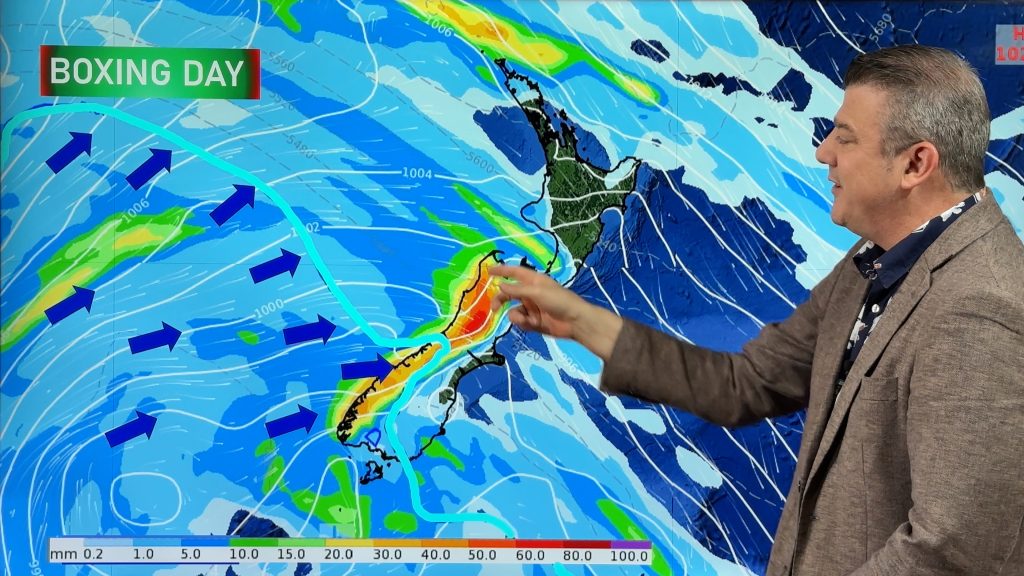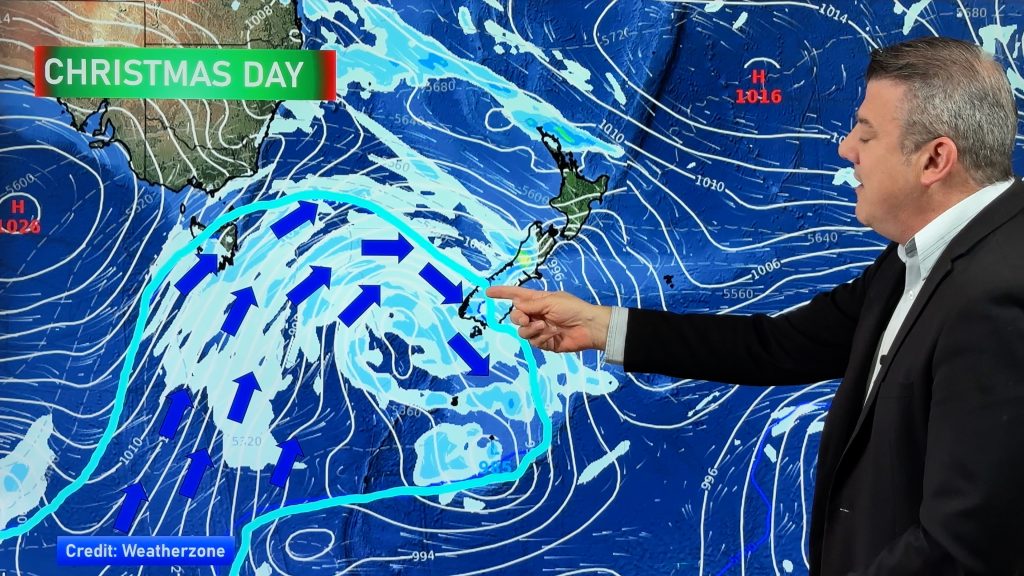
> From the WeatherWatch archives
This was not a year of extremes weatherwise, despite droughts, floods, tornados and snow. It’s easy for the media to use the word “extreme” but really the stormy weather events this year were fairly isolated and few and far between.
Here are the highlights from the WeatherWatch.co.nz archives:
* Jan 21: Drought zone declared in Northland but, ironically, on that same day the North Island is pummelled by heavy showers and thunderstorms.
* Jan 27: A major electrical storm lights up the night skies in Hamilton.
* April 27: For the first time in months, nationwide rain is forecast.
* May 24: Impressive rainfall figures are released following a nationwide deluge. Whakatane received 150mm within 24 hours but, incredibly, 70mm of that fell in just two hours – and 46mm fell in only one hour. Parts of North Otago received more than a month’s rainfall in just 24 hours, causing serious flooding.
 * Sept 17: A storm the size of Australia hits New Zealand several days after WeatherWatch.co.nz exclusively predicted it.
* Sept 17: A storm the size of Australia hits New Zealand several days after WeatherWatch.co.nz exclusively predicted it.
This was the biggest weather event of this year, outside of droughts.
* Up to 75,000 people are without power during storm’s duration;
* The top floor of a house in Auckland is completely blown to pieces by a twister; other tornados are reported in Auckland and Waikato;
* Trees crush and hit cars in Auckland.;
* More than 7000 lightning strikes are recorded around the country;
* Numerous state highways across the country are closed, including Auckland’s northwestern motorway. The Weekend Herald suffers up to nine-hour delays getting the paper delivered because of a power outage;
* Half a million lambs are killed by wintry blast in Southland;
* Brand new Stadium Southland suffers catastrophic damage when the roof collapses under heavy snow;
* Civil Defence warns Aucklanders to stay away from West Coast due to 8m swells. Hurricane force winds, peaking at 154km/h, hit the Manukau Heads;
* Oct/Nov: Parts of Northland and Auckland receive their hottest spring on record.
* Dec 18: Heavy rain and high humidity moves into northern New Zealand, bringing relief to some farmers but causing sleepless nights for many people.
Meanwhile, dry heat hits the South Island with Christchurch reaching 33C and a day earlier Invercargill takes the national high with 27C
– Philip Duncan writes a weekly column in the Herald on Sunday. This week WeatherWatch.co.nz will take an even deeper look into what big environmental stories made the headlines this year.
Image – Snow on the main truckline in Invercargill back in September / Malcolm Gayfer
Comments
Before you add a new comment, take note this story was published on 26 Dec 2010.




Add new comment